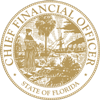CFO Jimmy Patronis Highlights Hurricane Preparedness Tips as NOAA Predicts Active 2021 Hurricane Season
5/20/2021
TALLAHASSEE, Fla. – Today, Chief Financial Officer (CFO) and State Fire Marshal Jimmy Patronis is highlighting hurricane preparedness tips and resources as the National Oceanic and Atmospheric Administration’s (NOAA) predicts another above-normal Atlantic hurricane season. NOAA forecasters predict 13 to 20 named storms, of which 6 to 10 could become hurricanes, including 3 to 5 major hurricanes is expected. The 2021 Atlantic Hurricane Season begins on June 1 and ends on November 30.
CFO Jimmy Patronis said, “Today, NOAA predicted an above-normal 2021 Hurricane Season with up to five major hurricanes and I’m encouraging all Floridians to be prepared. Before hurricane season begins, it’s imperative that you and your family have a disaster plan in place and your home is adequately protected. Business owners should also work now to ensure your business is prepared to weather and recover from a storm. As we’ve seen in the past, hurricanes can intensify and develop extremely fast, and I want to ensure all Floridians are prepared. Visit PrepareFL.com for information and resources before the next storm takes aim at Florida.”
CFO Patronis’ Insurance Consumer Helpline is available to assist Floridians with insurance-related questions, help you review your policy, understand your coverage, file a claim for damage and offer assistance in the event that you are having trouble communicating with your insurance company. Call the toll-free helpline at 1-877-MY-FL-CFO (693-5236), to talk to a knowledgeable insurance specialist Monday-Friday 8 a.m. to 5 p.m. or visit MyFloridaCFO.com.
Four Hurricane Preparedness Tips
1. Secure flood insurance coverage. Standard homeowner’s insurance policies don’t cover flood damage. If you live in a flood-prone area, contact your agent about obtaining flood insurance. There are over 30 insurance carriers writing flood insurance in Florida’s private insurance market. Depending on your home’s location, you may qualify to enroll in the federally-administered National Flood Insurance Program.
2. Ensure you are adequately covered. The value of your home and possessions may have increased during the past several years, or you may have made improvements or purchased expensive personal items. Review your insurance policy and check your coverage limits.
3. Consider additional living expense coverage. Additional living expense features of most homeowners’ policies pay some expenses for losses that leave homes unlivable during repairs. Such expenses could include limited motel, restaurant and storage costs.
4. Do not wait until a storm approaches. Property insurance companies do not accept new applications or requests to increase coverage once a hurricane nears Florida, so it is important not to wait until a storm is imminent to verify coverages. In addition, most flood insurance policies take 30 days to go into effect, so it is vital to act now.
For additional hurricane financial preparedness tips or resources, visit PrepareFL.com.
CFO Jimmy Patronis said, “Today, NOAA predicted an above-normal 2021 Hurricane Season with up to five major hurricanes and I’m encouraging all Floridians to be prepared. Before hurricane season begins, it’s imperative that you and your family have a disaster plan in place and your home is adequately protected. Business owners should also work now to ensure your business is prepared to weather and recover from a storm. As we’ve seen in the past, hurricanes can intensify and develop extremely fast, and I want to ensure all Floridians are prepared. Visit PrepareFL.com for information and resources before the next storm takes aim at Florida.”
CFO Patronis’ Insurance Consumer Helpline is available to assist Floridians with insurance-related questions, help you review your policy, understand your coverage, file a claim for damage and offer assistance in the event that you are having trouble communicating with your insurance company. Call the toll-free helpline at 1-877-MY-FL-CFO (693-5236), to talk to a knowledgeable insurance specialist Monday-Friday 8 a.m. to 5 p.m. or visit MyFloridaCFO.com.
Four Hurricane Preparedness Tips
1. Secure flood insurance coverage. Standard homeowner’s insurance policies don’t cover flood damage. If you live in a flood-prone area, contact your agent about obtaining flood insurance. There are over 30 insurance carriers writing flood insurance in Florida’s private insurance market. Depending on your home’s location, you may qualify to enroll in the federally-administered National Flood Insurance Program.
2. Ensure you are adequately covered. The value of your home and possessions may have increased during the past several years, or you may have made improvements or purchased expensive personal items. Review your insurance policy and check your coverage limits.
3. Consider additional living expense coverage. Additional living expense features of most homeowners’ policies pay some expenses for losses that leave homes unlivable during repairs. Such expenses could include limited motel, restaurant and storage costs.
4. Do not wait until a storm approaches. Property insurance companies do not accept new applications or requests to increase coverage once a hurricane nears Florida, so it is important not to wait until a storm is imminent to verify coverages. In addition, most flood insurance policies take 30 days to go into effect, so it is vital to act now.
For additional hurricane financial preparedness tips or resources, visit PrepareFL.com.
###
About CFO Jimmy Patronis
Chief Financial Officer and State Fire Marshal Jimmy Patronis is a statewide elected official and a member of Florida’s Cabinet who oversees the Department of Financial Services. CFO Patronis works each day to fight insurance fraud, support Florida’s firefighters, and ensure the state’s finances are stable to support economic growth in the state. Follow the activities of the Department on Facebook (FLDFS) and X (@FLDFS).
